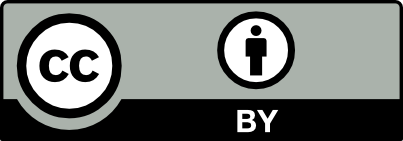The CAOL framework: Redefining blended learning through asynchronous online communities in Morocco
Hicham Dahmani  1 and Samira Chakroune
1 and Samira Chakroune  2
2
English Department, Faculty of Letters and Human Sciences-Sais, Sidi Mohamed Ben Abdellah University, Fez, Morocco
Corresponding author: hicham.dahmani1@usmba.ac.ma
DOI: 10.5281/zenodo.17268686
The sudden shift to online learning in the context of the coronavirus quarantine in Morocco brought to light significant disparities. It led to substantial pedagogical challenges, issues that persist in posing difficulties to educators within the contemporary blended learning environment. The present study investigates the underlying causes of these shortcomings and proposes a novel framework to foster more inclusive and effective digital education. It reveals critical barriers: a widespread lack of appropriate learning technology tools among disadvantaged students, inconsistent access to stable bandwidth connectivity, and a notable scarcity of official, curriculum-aligned digital learning materials. Furthermore, it identifies a prevalent disuse of the Ministry of Education’s provided learning management systems by practitioners, who instead resort to more familiar and accessible platforms such as WhatsApp, Facebook, and Google Classroom for remote instruction. In response to these findings, a community of asynchronous online learning framework is proposed. The framework under discussion is structured around four interrelated aspects: affordability, materiality, flexibility, and self-assessment. The intention behind this structure is to cater to the diverse needs of both technologically advantaged and disadvantaged students. Such a framework emphasises offline accessibility and aims to create a resilient, equitable, and effective asynchronous online learning environment that is tailored to the Moroccan reality.
Keywords: asynchronous learning, blended learning, digital divide, online learning framework, equitable access.
Published
2025/10/05
—
Section
Research Papers
16359756
{16359756:BPMFQ7RY}
1
apa
50
default
2192
https://ijtie.com/wp-content/plugins/zotpress/
%7B%22status%22%3A%22success%22%2C%22updateneeded%22%3Afalse%2C%22instance%22%3Afalse%2C%22meta%22%3A%7B%22request_last%22%3A0%2C%22request_next%22%3A0%2C%22used_cache%22%3Atrue%7D%2C%22data%22%3A%5B%7B%22key%22%3A%22BPMFQ7RY%22%2C%22library%22%3A%7B%22id%22%3A16359756%7D%2C%22meta%22%3A%7B%22creatorSummary%22%3A%22Dahmani%20and%20Chakroune%22%2C%22parsedDate%22%3A%222025-10-05%22%2C%22numChildren%22%3A0%7D%2C%22bib%22%3A%22%26lt%3Bdiv%20class%3D%26quot%3Bcsl-bib-body%26quot%3B%20style%3D%26quot%3Bline-height%3A%202%3B%20padding-left%3A%201em%3B%20text-indent%3A-1em%3B%26quot%3B%26gt%3B%5Cn%20%20%26lt%3Bdiv%20class%3D%26quot%3Bcsl-entry%26quot%3B%26gt%3BDahmani%2C%20H.%2C%20%26amp%3B%20Chakroune%2C%20S.%20%282025%29.%20The%20CAOL%20framework%3A%20Redefining%20blended%20learning%20through%20asynchronous%20online%20communities%20in%20Morocco.%20%26lt%3Bi%26gt%3BThe%20International%20Journal%20of%20Technology%2C%20Innovation%2C%20and%20Education%26lt%3B%5C%2Fi%26gt%3B%2C%20%26lt%3Bi%26gt%3B3%26lt%3B%5C%2Fi%26gt%3B%283%29%2C%207%26%23×2013%3B34.%20%26lt%3Ba%20class%3D%26%23039%3Bzp-DOIURL%26%23039%3B%20href%3D%26%23039%3Bhttps%3A%5C%2F%5C%2Fdoi.org%5C%2F10.5281%5C%2Fzenodo.17268686%26%23039%3B%26gt%3Bhttps%3A%5C%2F%5C%2Fdoi.org%5C%2F10.5281%5C%2Fzenodo.17268686%26lt%3B%5C%2Fa%26gt%3B%26lt%3B%5C%2Fdiv%26gt%3B%5Cn%26lt%3B%5C%2Fdiv%26gt%3B%22%2C%22data%22%3A%7B%22itemType%22%3A%22journalArticle%22%2C%22title%22%3A%22The%20CAOL%20framework%3A%20Redefining%20blended%20learning%20through%20asynchronous%20online%20communities%20in%20Morocco%22%2C%22creators%22%3A%5B%7B%22creatorType%22%3A%22author%22%2C%22firstName%22%3A%22Hicham%22%2C%22lastName%22%3A%22Dahmani%22%7D%2C%7B%22creatorType%22%3A%22author%22%2C%22firstName%22%3A%22Samira%22%2C%22lastName%22%3A%22Chakroune%22%7D%5D%2C%22abstractNote%22%3A%22The%20sudden%20shift%20to%20online%20learning%20in%20the%20context%20of%20the%20coronavirus%20quarantine%20in%20Morocco%20brought%20to%20light%20significant%20disparities.%20It%20led%20to%20substantial%20pedagogical%20challenges%2C%20issues%20that%20persist%20in%20posing%20difficulties%20to%20educators%20within%20the%20contemporary%20blended%20learning%20environment.%20The%20present%20study%20investigates%20the%20underlying%20causes%20of%20these%20shortcomings%20and%20proposes%20a%20novel%20framework%20to%20foster%20more%20inclusive%20and%20effective%20digital%20education.%20It%20reveals%20critical%20barriers%3A%20a%20widespread%20lack%20of%20appropriate%20learning%20technology%20tools%20among%20disadvantaged%20students%2C%20inconsistent%20access%20to%20stable%20bandwidth%20connectivity%2C%20and%20a%20notable%20scarcity%20of%20official%2C%20curriculum-aligned%20digital%20learning%20materials.%20Furthermore%2C%20it%20identifies%20a%20prevalent%20disuse%20of%20the%20Ministry%20of%20Education%5Cu2019s%20provided%20learning%20management%20systems%20by%20practitioners%2C%20who%20instead%20resort%20to%20more%20familiar%20and%20accessible%20platforms%20such%20as%20WhatsApp%2C%20Facebook%2C%20and%20Google%20Classroom%20for%20remote%20instruction.%20In%20response%20to%20these%20findings%2C%20a%20community%20of%20asynchronous%20online%20learning%20framework%20is%20proposed.%20The%20framework%20under%20discussion%20is%20structured%20around%20four%20interrelated%20aspects%3A%20affordability%2C%20materiality%2C%20flexibility%2C%20and%20self-assessment.%20The%20intention%20behind%20this%20structure%20is%20to%20cater%20to%20the%20diverse%20needs%20of%20both%20technologically%20advantaged%20and%20disadvantaged%20students.%20Such%20a%20framework%20emphasises%20offline%20accessibility%20and%20aims%20to%20create%20a%20resilient%2C%20equitable%2C%20and%20effective%20asynchronous%20online%20learning%20environment%20that%20is%20tailored%20to%20the%20Moroccan%20reality.%22%2C%22date%22%3A%222025-10-05%22%2C%22section%22%3A%22%22%2C%22partNumber%22%3A%22%22%2C%22partTitle%22%3A%22%22%2C%22DOI%22%3A%2210.5281%5C%2Fzenodo.17268686%22%2C%22citationKey%22%3A%22%22%2C%22url%22%3A%22https%3A%5C%2F%5C%2Fijtie.com%5C%2Fwp-content%5C%2Fuploads%5C%2F2025%5C%2F10%5C%2FN30343.pdf%22%2C%22PMID%22%3A%22%22%2C%22PMCID%22%3A%22%22%2C%22ISSN%22%3A%222820-7521%22%2C%22language%22%3A%22%22%2C%22collections%22%3A%5B%22QWYM8LHH%22%5D%2C%22dateModified%22%3A%222025-10-05T12%3A50%3A58Z%22%7D%7D%5D%7D
Dahmani, H., & Chakroune, S. (2025). The CAOL framework: Redefining blended learning through asynchronous online communities in Morocco.
The International Journal of Technology, Innovation, and Education,
3(3), 7–34.
https://doi.org/10.5281/zenodo.17268686
Chicago
MLA
IEEE
Harvard
Vancouver
APA
Chicago
Chicago
MLA
IEEE
Harvard
Vancouver
APA
16359756
{16359756:BPMFQ7RY}
1
chicago-author-date
50
default
2192
https://ijtie.com/wp-content/plugins/zotpress/
%7B%22status%22%3A%22success%22%2C%22updateneeded%22%3Afalse%2C%22instance%22%3Afalse%2C%22meta%22%3A%7B%22request_last%22%3A0%2C%22request_next%22%3A0%2C%22used_cache%22%3Atrue%7D%2C%22data%22%3A%5B%7B%22key%22%3A%22BPMFQ7RY%22%2C%22library%22%3A%7B%22id%22%3A16359756%7D%2C%22meta%22%3A%7B%22creatorSummary%22%3A%22Dahmani%20and%20Chakroune%22%2C%22parsedDate%22%3A%222025-10-05%22%2C%22numChildren%22%3A0%7D%2C%22bib%22%3A%22%26lt%3Bdiv%20class%3D%26quot%3Bcsl-bib-body%26quot%3B%20style%3D%26quot%3Bline-height%3A%201.35%3B%20padding-left%3A%201em%3B%20text-indent%3A-1em%3B%26quot%3B%26gt%3B%5Cn%20%20%26lt%3Bdiv%20class%3D%26quot%3Bcsl-entry%26quot%3B%26gt%3BDahmani%2C%20Hicham%2C%20and%20Samira%20Chakroune.%202025.%20%26%23x201C%3BThe%20CAOL%20Framework%3A%20Redefining%20Blended%20Learning%20through%20Asynchronous%20Online%20Communities%20in%20Morocco.%26%23x201D%3B%20%26lt%3Bi%26gt%3BThe%20International%20Journal%20of%20Technology%2C%20Innovation%2C%20and%20Education%26lt%3B%5C%2Fi%26gt%3B%203%20%283%29%3A%207%26%23×2013%3B34.%20%26lt%3Ba%20class%3D%26%23039%3Bzp-DOIURL%26%23039%3B%20href%3D%26%23039%3Bhttps%3A%5C%2F%5C%2Fdoi.org%5C%2F10.5281%5C%2Fzenodo.17268686%26%23039%3B%26gt%3Bhttps%3A%5C%2F%5C%2Fdoi.org%5C%2F10.5281%5C%2Fzenodo.17268686%26lt%3B%5C%2Fa%26gt%3B.%26lt%3B%5C%2Fdiv%26gt%3B%5Cn%26lt%3B%5C%2Fdiv%26gt%3B%22%2C%22data%22%3A%7B%22itemType%22%3A%22journalArticle%22%2C%22title%22%3A%22The%20CAOL%20framework%3A%20Redefining%20blended%20learning%20through%20asynchronous%20online%20communities%20in%20Morocco%22%2C%22creators%22%3A%5B%7B%22creatorType%22%3A%22author%22%2C%22firstName%22%3A%22Hicham%22%2C%22lastName%22%3A%22Dahmani%22%7D%2C%7B%22creatorType%22%3A%22author%22%2C%22firstName%22%3A%22Samira%22%2C%22lastName%22%3A%22Chakroune%22%7D%5D%2C%22abstractNote%22%3A%22The%20sudden%20shift%20to%20online%20learning%20in%20the%20context%20of%20the%20coronavirus%20quarantine%20in%20Morocco%20brought%20to%20light%20significant%20disparities.%20It%20led%20to%20substantial%20pedagogical%20challenges%2C%20issues%20that%20persist%20in%20posing%20difficulties%20to%20educators%20within%20the%20contemporary%20blended%20learning%20environment.%20The%20present%20study%20investigates%20the%20underlying%20causes%20of%20these%20shortcomings%20and%20proposes%20a%20novel%20framework%20to%20foster%20more%20inclusive%20and%20effective%20digital%20education.%20It%20reveals%20critical%20barriers%3A%20a%20widespread%20lack%20of%20appropriate%20learning%20technology%20tools%20among%20disadvantaged%20students%2C%20inconsistent%20access%20to%20stable%20bandwidth%20connectivity%2C%20and%20a%20notable%20scarcity%20of%20official%2C%20curriculum-aligned%20digital%20learning%20materials.%20Furthermore%2C%20it%20identifies%20a%20prevalent%20disuse%20of%20the%20Ministry%20of%20Education%5Cu2019s%20provided%20learning%20management%20systems%20by%20practitioners%2C%20who%20instead%20resort%20to%20more%20familiar%20and%20accessible%20platforms%20such%20as%20WhatsApp%2C%20Facebook%2C%20and%20Google%20Classroom%20for%20remote%20instruction.%20In%20response%20to%20these%20findings%2C%20a%20community%20of%20asynchronous%20online%20learning%20framework%20is%20proposed.%20The%20framework%20under%20discussion%20is%20structured%20around%20four%20interrelated%20aspects%3A%20affordability%2C%20materiality%2C%20flexibility%2C%20and%20self-assessment.%20The%20intention%20behind%20this%20structure%20is%20to%20cater%20to%20the%20diverse%20needs%20of%20both%20technologically%20advantaged%20and%20disadvantaged%20students.%20Such%20a%20framework%20emphasises%20offline%20accessibility%20and%20aims%20to%20create%20a%20resilient%2C%20equitable%2C%20and%20effective%20asynchronous%20online%20learning%20environment%20that%20is%20tailored%20to%20the%20Moroccan%20reality.%22%2C%22date%22%3A%222025-10-05%22%2C%22section%22%3A%22%22%2C%22partNumber%22%3A%22%22%2C%22partTitle%22%3A%22%22%2C%22DOI%22%3A%2210.5281%5C%2Fzenodo.17268686%22%2C%22citationKey%22%3A%22%22%2C%22url%22%3A%22https%3A%5C%2F%5C%2Fijtie.com%5C%2Fwp-content%5C%2Fuploads%5C%2F2025%5C%2F10%5C%2FN30343.pdf%22%2C%22PMID%22%3A%22%22%2C%22PMCID%22%3A%22%22%2C%22ISSN%22%3A%222820-7521%22%2C%22language%22%3A%22%22%2C%22collections%22%3A%5B%22QWYM8LHH%22%5D%2C%22dateModified%22%3A%222025-10-05T12%3A50%3A58Z%22%7D%7D%5D%7D
Dahmani, Hicham, and Samira Chakroune. 2025. “The CAOL Framework: Redefining Blended Learning through Asynchronous Online Communities in Morocco.”
The International Journal of Technology, Innovation, and Education 3 (3): 7–34.
https://doi.org/10.5281/zenodo.17268686.
16359756
{16359756:BPMFQ7RY}
1
modern-language-association
50
default
2192
https://ijtie.com/wp-content/plugins/zotpress/
%7B%22status%22%3A%22success%22%2C%22updateneeded%22%3Afalse%2C%22instance%22%3Afalse%2C%22meta%22%3A%7B%22request_last%22%3A0%2C%22request_next%22%3A0%2C%22used_cache%22%3Atrue%7D%2C%22data%22%3A%5B%7B%22key%22%3A%22BPMFQ7RY%22%2C%22library%22%3A%7B%22id%22%3A16359756%7D%2C%22meta%22%3A%7B%22creatorSummary%22%3A%22Dahmani%20and%20Chakroune%22%2C%22parsedDate%22%3A%222025-10-05%22%2C%22numChildren%22%3A0%7D%2C%22bib%22%3A%22%26lt%3Bdiv%20class%3D%26quot%3Bcsl-bib-body%26quot%3B%20style%3D%26quot%3Bline-height%3A%202%3B%20padding-left%3A%201em%3B%20text-indent%3A-1em%3B%26quot%3B%26gt%3B%5Cn%20%20%26lt%3Bdiv%20class%3D%26quot%3Bcsl-entry%26quot%3B%26gt%3BDahmani%2C%20Hicham%2C%20and%20Samira%20Chakroune.%20%26%23x201C%3BThe%20CAOL%20Framework%3A%20Redefining%20Blended%20Learning%20through%20Asynchronous%20Online%20Communities%20in%20Morocco.%26%23x201D%3B%20%26lt%3Bi%26gt%3BThe%20International%20Journal%20of%20Technology%2C%20Innovation%2C%20and%20Education%26lt%3B%5C%2Fi%26gt%3B%2C%20vol.%203%2C%20no.%203%2C%20Oct.%202025%2C%20pp.%207%26%23×2013%3B34%2C%20%26lt%3Ba%20class%3D%26%23039%3Bzp-DOIURL%26%23039%3B%20href%3D%26%23039%3Bhttps%3A%5C%2F%5C%2Fdoi.org%5C%2F10.5281%5C%2Fzenodo.17268686%26%23039%3B%26gt%3Bhttps%3A%5C%2F%5C%2Fdoi.org%5C%2F10.5281%5C%2Fzenodo.17268686%26lt%3B%5C%2Fa%26gt%3B.%26lt%3B%5C%2Fdiv%26gt%3B%5Cn%26lt%3B%5C%2Fdiv%26gt%3B%22%2C%22data%22%3A%7B%22itemType%22%3A%22journalArticle%22%2C%22title%22%3A%22The%20CAOL%20framework%3A%20Redefining%20blended%20learning%20through%20asynchronous%20online%20communities%20in%20Morocco%22%2C%22creators%22%3A%5B%7B%22creatorType%22%3A%22author%22%2C%22firstName%22%3A%22Hicham%22%2C%22lastName%22%3A%22Dahmani%22%7D%2C%7B%22creatorType%22%3A%22author%22%2C%22firstName%22%3A%22Samira%22%2C%22lastName%22%3A%22Chakroune%22%7D%5D%2C%22abstractNote%22%3A%22The%20sudden%20shift%20to%20online%20learning%20in%20the%20context%20of%20the%20coronavirus%20quarantine%20in%20Morocco%20brought%20to%20light%20significant%20disparities.%20It%20led%20to%20substantial%20pedagogical%20challenges%2C%20issues%20that%20persist%20in%20posing%20difficulties%20to%20educators%20within%20the%20contemporary%20blended%20learning%20environment.%20The%20present%20study%20investigates%20the%20underlying%20causes%20of%20these%20shortcomings%20and%20proposes%20a%20novel%20framework%20to%20foster%20more%20inclusive%20and%20effective%20digital%20education.%20It%20reveals%20critical%20barriers%3A%20a%20widespread%20lack%20of%20appropriate%20learning%20technology%20tools%20among%20disadvantaged%20students%2C%20inconsistent%20access%20to%20stable%20bandwidth%20connectivity%2C%20and%20a%20notable%20scarcity%20of%20official%2C%20curriculum-aligned%20digital%20learning%20materials.%20Furthermore%2C%20it%20identifies%20a%20prevalent%20disuse%20of%20the%20Ministry%20of%20Education%5Cu2019s%20provided%20learning%20management%20systems%20by%20practitioners%2C%20who%20instead%20resort%20to%20more%20familiar%20and%20accessible%20platforms%20such%20as%20WhatsApp%2C%20Facebook%2C%20and%20Google%20Classroom%20for%20remote%20instruction.%20In%20response%20to%20these%20findings%2C%20a%20community%20of%20asynchronous%20online%20learning%20framework%20is%20proposed.%20The%20framework%20under%20discussion%20is%20structured%20around%20four%20interrelated%20aspects%3A%20affordability%2C%20materiality%2C%20flexibility%2C%20and%20self-assessment.%20The%20intention%20behind%20this%20structure%20is%20to%20cater%20to%20the%20diverse%20needs%20of%20both%20technologically%20advantaged%20and%20disadvantaged%20students.%20Such%20a%20framework%20emphasises%20offline%20accessibility%20and%20aims%20to%20create%20a%20resilient%2C%20equitable%2C%20and%20effective%20asynchronous%20online%20learning%20environment%20that%20is%20tailored%20to%20the%20Moroccan%20reality.%22%2C%22date%22%3A%222025-10-05%22%2C%22section%22%3A%22%22%2C%22partNumber%22%3A%22%22%2C%22partTitle%22%3A%22%22%2C%22DOI%22%3A%2210.5281%5C%2Fzenodo.17268686%22%2C%22citationKey%22%3A%22%22%2C%22url%22%3A%22https%3A%5C%2F%5C%2Fijtie.com%5C%2Fwp-content%5C%2Fuploads%5C%2F2025%5C%2F10%5C%2FN30343.pdf%22%2C%22PMID%22%3A%22%22%2C%22PMCID%22%3A%22%22%2C%22ISSN%22%3A%222820-7521%22%2C%22language%22%3A%22%22%2C%22collections%22%3A%5B%22QWYM8LHH%22%5D%2C%22dateModified%22%3A%222025-10-05T12%3A50%3A58Z%22%7D%7D%5D%7D
Dahmani, Hicham, and Samira Chakroune. “The CAOL Framework: Redefining Blended Learning through Asynchronous Online Communities in Morocco.”
The International Journal of Technology, Innovation, and Education, vol. 3, no. 3, Oct. 2025, pp. 7–34,
https://doi.org/10.5281/zenodo.17268686.
16359756
{16359756:BPMFQ7RY}
1
ieee
50
default
2192
https://ijtie.com/wp-content/plugins/zotpress/
%7B%22status%22%3A%22success%22%2C%22updateneeded%22%3Afalse%2C%22instance%22%3Afalse%2C%22meta%22%3A%7B%22request_last%22%3A0%2C%22request_next%22%3A0%2C%22used_cache%22%3Atrue%7D%2C%22data%22%3A%5B%7B%22key%22%3A%22BPMFQ7RY%22%2C%22library%22%3A%7B%22id%22%3A16359756%7D%2C%22meta%22%3A%7B%22creatorSummary%22%3A%22Dahmani%20and%20Chakroune%22%2C%22parsedDate%22%3A%222025-10-05%22%2C%22numChildren%22%3A0%7D%2C%22bib%22%3A%22%26lt%3Bdiv%20class%3D%26quot%3Bcsl-bib-body%26quot%3B%20style%3D%26quot%3Bline-height%3A%201.35%3B%20%26quot%3B%26gt%3B%5Cn%20%20%26lt%3Bdiv%20class%3D%26quot%3Bcsl-entry%26quot%3B%20style%3D%26quot%3Bclear%3A%20left%3B%20%26quot%3B%26gt%3B%5Cn%20%20%20%20%26lt%3Bdiv%20class%3D%26quot%3Bcsl-left-margin%26quot%3B%20style%3D%26quot%3Bfloat%3A%20left%3B%20padding-right%3A%200.5em%3B%20text-align%3A%20right%3B%20width%3A%201em%3B%26quot%3B%26gt%3B%5B1%5D%26lt%3B%5C%2Fdiv%26gt%3B%26lt%3Bdiv%20class%3D%26quot%3Bcsl-right-inline%26quot%3B%20style%3D%26quot%3Bmargin%3A%200%20.4em%200%201.5em%3B%26quot%3B%26gt%3BH.%20Dahmani%20and%20S.%20Chakroune%2C%20%26%23x201C%3BThe%20CAOL%20framework%3A%20Redefining%20blended%20learning%20through%20asynchronous%20online%20communities%20in%20Morocco%2C%26%23x201D%3B%20%26lt%3Bi%26gt%3BThe%20International%20Journal%20of%20Technology%2C%20Innovation%2C%20and%20Education%26lt%3B%5C%2Fi%26gt%3B%2C%20vol.%203%2C%20no.%203%2C%20pp.%207%26%23×2013%3B34%2C%20Oct.%202025%2C%20doi%3A%2010.5281%5C%2Fzenodo.17268686.%26lt%3B%5C%2Fdiv%26gt%3B%5Cn%20%20%26lt%3B%5C%2Fdiv%26gt%3B%5Cn%26lt%3B%5C%2Fdiv%26gt%3B%22%2C%22data%22%3A%7B%22itemType%22%3A%22journalArticle%22%2C%22title%22%3A%22The%20CAOL%20framework%3A%20Redefining%20blended%20learning%20through%20asynchronous%20online%20communities%20in%20Morocco%22%2C%22creators%22%3A%5B%7B%22creatorType%22%3A%22author%22%2C%22firstName%22%3A%22Hicham%22%2C%22lastName%22%3A%22Dahmani%22%7D%2C%7B%22creatorType%22%3A%22author%22%2C%22firstName%22%3A%22Samira%22%2C%22lastName%22%3A%22Chakroune%22%7D%5D%2C%22abstractNote%22%3A%22The%20sudden%20shift%20to%20online%20learning%20in%20the%20context%20of%20the%20coronavirus%20quarantine%20in%20Morocco%20brought%20to%20light%20significant%20disparities.%20It%20led%20to%20substantial%20pedagogical%20challenges%2C%20issues%20that%20persist%20in%20posing%20difficulties%20to%20educators%20within%20the%20contemporary%20blended%20learning%20environment.%20The%20present%20study%20investigates%20the%20underlying%20causes%20of%20these%20shortcomings%20and%20proposes%20a%20novel%20framework%20to%20foster%20more%20inclusive%20and%20effective%20digital%20education.%20It%20reveals%20critical%20barriers%3A%20a%20widespread%20lack%20of%20appropriate%20learning%20technology%20tools%20among%20disadvantaged%20students%2C%20inconsistent%20access%20to%20stable%20bandwidth%20connectivity%2C%20and%20a%20notable%20scarcity%20of%20official%2C%20curriculum-aligned%20digital%20learning%20materials.%20Furthermore%2C%20it%20identifies%20a%20prevalent%20disuse%20of%20the%20Ministry%20of%20Education%5Cu2019s%20provided%20learning%20management%20systems%20by%20practitioners%2C%20who%20instead%20resort%20to%20more%20familiar%20and%20accessible%20platforms%20such%20as%20WhatsApp%2C%20Facebook%2C%20and%20Google%20Classroom%20for%20remote%20instruction.%20In%20response%20to%20these%20findings%2C%20a%20community%20of%20asynchronous%20online%20learning%20framework%20is%20proposed.%20The%20framework%20under%20discussion%20is%20structured%20around%20four%20interrelated%20aspects%3A%20affordability%2C%20materiality%2C%20flexibility%2C%20and%20self-assessment.%20The%20intention%20behind%20this%20structure%20is%20to%20cater%20to%20the%20diverse%20needs%20of%20both%20technologically%20advantaged%20and%20disadvantaged%20students.%20Such%20a%20framework%20emphasises%20offline%20accessibility%20and%20aims%20to%20create%20a%20resilient%2C%20equitable%2C%20and%20effective%20asynchronous%20online%20learning%20environment%20that%20is%20tailored%20to%20the%20Moroccan%20reality.%22%2C%22date%22%3A%222025-10-05%22%2C%22section%22%3A%22%22%2C%22partNumber%22%3A%22%22%2C%22partTitle%22%3A%22%22%2C%22DOI%22%3A%2210.5281%5C%2Fzenodo.17268686%22%2C%22citationKey%22%3A%22%22%2C%22url%22%3A%22https%3A%5C%2F%5C%2Fijtie.com%5C%2Fwp-content%5C%2Fuploads%5C%2F2025%5C%2F10%5C%2FN30343.pdf%22%2C%22PMID%22%3A%22%22%2C%22PMCID%22%3A%22%22%2C%22ISSN%22%3A%222820-7521%22%2C%22language%22%3A%22%22%2C%22collections%22%3A%5B%22QWYM8LHH%22%5D%2C%22dateModified%22%3A%222025-10-05T12%3A50%3A58Z%22%7D%7D%5D%7D
[1]
H. Dahmani and S. Chakroune, “The CAOL framework: Redefining blended learning through asynchronous online communities in Morocco,” The International Journal of Technology, Innovation, and Education, vol. 3, no. 3, pp. 7–34, Oct. 2025, doi: 10.5281/zenodo.17268686.
16359756
{16359756:BPMFQ7RY}
1
harvard1
50
default
2192
https://ijtie.com/wp-content/plugins/zotpress/
%7B%22status%22%3A%22success%22%2C%22updateneeded%22%3Afalse%2C%22instance%22%3Afalse%2C%22meta%22%3A%7B%22request_last%22%3A0%2C%22request_next%22%3A0%2C%22used_cache%22%3Atrue%7D%2C%22data%22%3A%5B%7B%22key%22%3A%22BPMFQ7RY%22%2C%22library%22%3A%7B%22id%22%3A16359756%7D%2C%22meta%22%3A%7B%22creatorSummary%22%3A%22Dahmani%20and%20Chakroune%22%2C%22parsedDate%22%3A%222025-10-05%22%2C%22numChildren%22%3A0%7D%2C%22bib%22%3A%22%26lt%3Bdiv%20class%3D%26quot%3Bcsl-bib-body%26quot%3B%20style%3D%26quot%3Bline-height%3A%201.35%3B%20%26quot%3B%26gt%3B%5Cn%20%20%26lt%3Bdiv%20class%3D%26quot%3Bcsl-entry%26quot%3B%26gt%3BDahmani%2C%20H.%20and%20Chakroune%2C%20S.%20%282025%29%20%26%23x201C%3BThe%20CAOL%20framework%3A%20Redefining%20blended%20learning%20through%20asynchronous%20online%20communities%20in%20Morocco%2C%26%23x201D%3B%20%26lt%3Bi%26gt%3BThe%20International%20Journal%20of%20Technology%2C%20Innovation%2C%20and%20Education%26lt%3B%5C%2Fi%26gt%3B%2C%203%283%29%2C%20pp.%207%26%23×2013%3B34.%20Available%20at%3A%20%26lt%3Ba%20class%3D%26%23039%3Bzp-DOIURL%26%23039%3B%20href%3D%26%23039%3Bhttps%3A%5C%2F%5C%2Fdoi.org%5C%2F10.5281%5C%2Fzenodo.17268686%26%23039%3B%26gt%3Bhttps%3A%5C%2F%5C%2Fdoi.org%5C%2F10.5281%5C%2Fzenodo.17268686%26lt%3B%5C%2Fa%26gt%3B.%26lt%3B%5C%2Fdiv%26gt%3B%5Cn%26lt%3B%5C%2Fdiv%26gt%3B%22%2C%22data%22%3A%7B%22itemType%22%3A%22journalArticle%22%2C%22title%22%3A%22The%20CAOL%20framework%3A%20Redefining%20blended%20learning%20through%20asynchronous%20online%20communities%20in%20Morocco%22%2C%22creators%22%3A%5B%7B%22creatorType%22%3A%22author%22%2C%22firstName%22%3A%22Hicham%22%2C%22lastName%22%3A%22Dahmani%22%7D%2C%7B%22creatorType%22%3A%22author%22%2C%22firstName%22%3A%22Samira%22%2C%22lastName%22%3A%22Chakroune%22%7D%5D%2C%22abstractNote%22%3A%22The%20sudden%20shift%20to%20online%20learning%20in%20the%20context%20of%20the%20coronavirus%20quarantine%20in%20Morocco%20brought%20to%20light%20significant%20disparities.%20It%20led%20to%20substantial%20pedagogical%20challenges%2C%20issues%20that%20persist%20in%20posing%20difficulties%20to%20educators%20within%20the%20contemporary%20blended%20learning%20environment.%20The%20present%20study%20investigates%20the%20underlying%20causes%20of%20these%20shortcomings%20and%20proposes%20a%20novel%20framework%20to%20foster%20more%20inclusive%20and%20effective%20digital%20education.%20It%20reveals%20critical%20barriers%3A%20a%20widespread%20lack%20of%20appropriate%20learning%20technology%20tools%20among%20disadvantaged%20students%2C%20inconsistent%20access%20to%20stable%20bandwidth%20connectivity%2C%20and%20a%20notable%20scarcity%20of%20official%2C%20curriculum-aligned%20digital%20learning%20materials.%20Furthermore%2C%20it%20identifies%20a%20prevalent%20disuse%20of%20the%20Ministry%20of%20Education%5Cu2019s%20provided%20learning%20management%20systems%20by%20practitioners%2C%20who%20instead%20resort%20to%20more%20familiar%20and%20accessible%20platforms%20such%20as%20WhatsApp%2C%20Facebook%2C%20and%20Google%20Classroom%20for%20remote%20instruction.%20In%20response%20to%20these%20findings%2C%20a%20community%20of%20asynchronous%20online%20learning%20framework%20is%20proposed.%20The%20framework%20under%20discussion%20is%20structured%20around%20four%20interrelated%20aspects%3A%20affordability%2C%20materiality%2C%20flexibility%2C%20and%20self-assessment.%20The%20intention%20behind%20this%20structure%20is%20to%20cater%20to%20the%20diverse%20needs%20of%20both%20technologically%20advantaged%20and%20disadvantaged%20students.%20Such%20a%20framework%20emphasises%20offline%20accessibility%20and%20aims%20to%20create%20a%20resilient%2C%20equitable%2C%20and%20effective%20asynchronous%20online%20learning%20environment%20that%20is%20tailored%20to%20the%20Moroccan%20reality.%22%2C%22date%22%3A%222025-10-05%22%2C%22section%22%3A%22%22%2C%22partNumber%22%3A%22%22%2C%22partTitle%22%3A%22%22%2C%22DOI%22%3A%2210.5281%5C%2Fzenodo.17268686%22%2C%22citationKey%22%3A%22%22%2C%22url%22%3A%22https%3A%5C%2F%5C%2Fijtie.com%5C%2Fwp-content%5C%2Fuploads%5C%2F2025%5C%2F10%5C%2FN30343.pdf%22%2C%22PMID%22%3A%22%22%2C%22PMCID%22%3A%22%22%2C%22ISSN%22%3A%222820-7521%22%2C%22language%22%3A%22%22%2C%22collections%22%3A%5B%22QWYM8LHH%22%5D%2C%22dateModified%22%3A%222025-10-05T12%3A50%3A58Z%22%7D%7D%5D%7D
Dahmani, H. and Chakroune, S. (2025) “The CAOL framework: Redefining blended learning through asynchronous online communities in Morocco,”
The International Journal of Technology, Innovation, and Education, 3(3), pp. 7–34. Available at:
https://doi.org/10.5281/zenodo.17268686.
16359756
{16359756:BPMFQ7RY}
1
vancouver-author-date
50
default
2192
https://ijtie.com/wp-content/plugins/zotpress/
%7B%22status%22%3A%22success%22%2C%22updateneeded%22%3Afalse%2C%22instance%22%3Afalse%2C%22meta%22%3A%7B%22request_last%22%3A0%2C%22request_next%22%3A0%2C%22used_cache%22%3Atrue%7D%2C%22data%22%3A%5B%7B%22key%22%3A%22BPMFQ7RY%22%2C%22library%22%3A%7B%22id%22%3A16359756%7D%2C%22meta%22%3A%7B%22creatorSummary%22%3A%22Dahmani%20and%20Chakroune%22%2C%22parsedDate%22%3A%222025-10-05%22%2C%22numChildren%22%3A0%7D%2C%22bib%22%3A%22%26lt%3Bdiv%20class%3D%26quot%3Bcsl-bib-body%26quot%3B%20style%3D%26quot%3Bline-height%3A%201.35%3B%20padding-left%3A%201em%3B%20text-indent%3A-1em%3B%26quot%3B%26gt%3B%5Cn%20%20%26lt%3Bdiv%20class%3D%26quot%3Bcsl-entry%26quot%3B%26gt%3BDahmani%20H%2C%20Chakroune%20S.%20The%20CAOL%20framework%3A%20Redefining%20blended%20learning%20through%20asynchronous%20online%20communities%20in%20Morocco.%20The%20International%20Journal%20of%20Technology%2C%20Innovation%2C%20and%20Education%20%5BInternet%5D.%202025%20Oct%205%3B3%283%29%3A7%26%23×2013%3B34.%20Available%20from%3A%20%26lt%3Ba%20class%3D%26%23039%3Bzp-ItemURL%26%23039%3B%20href%3D%26%23039%3Bhttps%3A%5C%2F%5C%2Fijtie.com%5C%2Fwp-content%5C%2Fuploads%5C%2F2025%5C%2F10%5C%2FN30343.pdf%26%23039%3B%26gt%3Bhttps%3A%5C%2F%5C%2Fijtie.com%5C%2Fwp-content%5C%2Fuploads%5C%2F2025%5C%2F10%5C%2FN30343.pdf%26lt%3B%5C%2Fa%26gt%3B%26lt%3B%5C%2Fdiv%26gt%3B%5Cn%26lt%3B%5C%2Fdiv%26gt%3B%22%2C%22data%22%3A%7B%22itemType%22%3A%22journalArticle%22%2C%22title%22%3A%22The%20CAOL%20framework%3A%20Redefining%20blended%20learning%20through%20asynchronous%20online%20communities%20in%20Morocco%22%2C%22creators%22%3A%5B%7B%22creatorType%22%3A%22author%22%2C%22firstName%22%3A%22Hicham%22%2C%22lastName%22%3A%22Dahmani%22%7D%2C%7B%22creatorType%22%3A%22author%22%2C%22firstName%22%3A%22Samira%22%2C%22lastName%22%3A%22Chakroune%22%7D%5D%2C%22abstractNote%22%3A%22The%20sudden%20shift%20to%20online%20learning%20in%20the%20context%20of%20the%20coronavirus%20quarantine%20in%20Morocco%20brought%20to%20light%20significant%20disparities.%20It%20led%20to%20substantial%20pedagogical%20challenges%2C%20issues%20that%20persist%20in%20posing%20difficulties%20to%20educators%20within%20the%20contemporary%20blended%20learning%20environment.%20The%20present%20study%20investigates%20the%20underlying%20causes%20of%20these%20shortcomings%20and%20proposes%20a%20novel%20framework%20to%20foster%20more%20inclusive%20and%20effective%20digital%20education.%20It%20reveals%20critical%20barriers%3A%20a%20widespread%20lack%20of%20appropriate%20learning%20technology%20tools%20among%20disadvantaged%20students%2C%20inconsistent%20access%20to%20stable%20bandwidth%20connectivity%2C%20and%20a%20notable%20scarcity%20of%20official%2C%20curriculum-aligned%20digital%20learning%20materials.%20Furthermore%2C%20it%20identifies%20a%20prevalent%20disuse%20of%20the%20Ministry%20of%20Education%5Cu2019s%20provided%20learning%20management%20systems%20by%20practitioners%2C%20who%20instead%20resort%20to%20more%20familiar%20and%20accessible%20platforms%20such%20as%20WhatsApp%2C%20Facebook%2C%20and%20Google%20Classroom%20for%20remote%20instruction.%20In%20response%20to%20these%20findings%2C%20a%20community%20of%20asynchronous%20online%20learning%20framework%20is%20proposed.%20The%20framework%20under%20discussion%20is%20structured%20around%20four%20interrelated%20aspects%3A%20affordability%2C%20materiality%2C%20flexibility%2C%20and%20self-assessment.%20The%20intention%20behind%20this%20structure%20is%20to%20cater%20to%20the%20diverse%20needs%20of%20both%20technologically%20advantaged%20and%20disadvantaged%20students.%20Such%20a%20framework%20emphasises%20offline%20accessibility%20and%20aims%20to%20create%20a%20resilient%2C%20equitable%2C%20and%20effective%20asynchronous%20online%20learning%20environment%20that%20is%20tailored%20to%20the%20Moroccan%20reality.%22%2C%22date%22%3A%222025-10-05%22%2C%22section%22%3A%22%22%2C%22partNumber%22%3A%22%22%2C%22partTitle%22%3A%22%22%2C%22DOI%22%3A%2210.5281%5C%2Fzenodo.17268686%22%2C%22citationKey%22%3A%22%22%2C%22url%22%3A%22https%3A%5C%2F%5C%2Fijtie.com%5C%2Fwp-content%5C%2Fuploads%5C%2F2025%5C%2F10%5C%2FN30343.pdf%22%2C%22PMID%22%3A%22%22%2C%22PMCID%22%3A%22%22%2C%22ISSN%22%3A%222820-7521%22%2C%22language%22%3A%22%22%2C%22collections%22%3A%5B%22QWYM8LHH%22%5D%2C%22dateModified%22%3A%222025-10-05T12%3A50%3A58Z%22%7D%7D%5D%7D
Dahmani H, Chakroune S. The CAOL framework: Redefining blended learning through asynchronous online communities in Morocco. The International Journal of Technology, Innovation, and Education [Internet]. 2025 Oct 5;3(3):7–34. Available from:
https://ijtie.com/wp-content/uploads/2025/10/N30343.pdf
16359756
{16359756:BPMFQ7RY}
1
apa
50
default
2192
https://ijtie.com/wp-content/plugins/zotpress/
%7B%22status%22%3A%22success%22%2C%22updateneeded%22%3Afalse%2C%22instance%22%3Afalse%2C%22meta%22%3A%7B%22request_last%22%3A0%2C%22request_next%22%3A0%2C%22used_cache%22%3Atrue%7D%2C%22data%22%3A%5B%7B%22key%22%3A%22BPMFQ7RY%22%2C%22library%22%3A%7B%22id%22%3A16359756%7D%2C%22meta%22%3A%7B%22creatorSummary%22%3A%22Dahmani%20and%20Chakroune%22%2C%22parsedDate%22%3A%222025-10-05%22%2C%22numChildren%22%3A0%7D%2C%22bib%22%3A%22%26lt%3Bdiv%20class%3D%26quot%3Bcsl-bib-body%26quot%3B%20style%3D%26quot%3Bline-height%3A%202%3B%20padding-left%3A%201em%3B%20text-indent%3A-1em%3B%26quot%3B%26gt%3B%5Cn%20%20%26lt%3Bdiv%20class%3D%26quot%3Bcsl-entry%26quot%3B%26gt%3BDahmani%2C%20H.%2C%20%26amp%3B%20Chakroune%2C%20S.%20%282025%29.%20The%20CAOL%20framework%3A%20Redefining%20blended%20learning%20through%20asynchronous%20online%20communities%20in%20Morocco.%20%26lt%3Bi%26gt%3BThe%20International%20Journal%20of%20Technology%2C%20Innovation%2C%20and%20Education%26lt%3B%5C%2Fi%26gt%3B%2C%20%26lt%3Bi%26gt%3B3%26lt%3B%5C%2Fi%26gt%3B%283%29%2C%207%26%23×2013%3B34.%20%26lt%3Ba%20class%3D%26%23039%3Bzp-DOIURL%26%23039%3B%20href%3D%26%23039%3Bhttps%3A%5C%2F%5C%2Fdoi.org%5C%2F10.5281%5C%2Fzenodo.17268686%26%23039%3B%26gt%3Bhttps%3A%5C%2F%5C%2Fdoi.org%5C%2F10.5281%5C%2Fzenodo.17268686%26lt%3B%5C%2Fa%26gt%3B%26lt%3B%5C%2Fdiv%26gt%3B%5Cn%26lt%3B%5C%2Fdiv%26gt%3B%22%2C%22data%22%3A%7B%22itemType%22%3A%22journalArticle%22%2C%22title%22%3A%22The%20CAOL%20framework%3A%20Redefining%20blended%20learning%20through%20asynchronous%20online%20communities%20in%20Morocco%22%2C%22creators%22%3A%5B%7B%22creatorType%22%3A%22author%22%2C%22firstName%22%3A%22Hicham%22%2C%22lastName%22%3A%22Dahmani%22%7D%2C%7B%22creatorType%22%3A%22author%22%2C%22firstName%22%3A%22Samira%22%2C%22lastName%22%3A%22Chakroune%22%7D%5D%2C%22abstractNote%22%3A%22The%20sudden%20shift%20to%20online%20learning%20in%20the%20context%20of%20the%20coronavirus%20quarantine%20in%20Morocco%20brought%20to%20light%20significant%20disparities.%20It%20led%20to%20substantial%20pedagogical%20challenges%2C%20issues%20that%20persist%20in%20posing%20difficulties%20to%20educators%20within%20the%20contemporary%20blended%20learning%20environment.%20The%20present%20study%20investigates%20the%20underlying%20causes%20of%20these%20shortcomings%20and%20proposes%20a%20novel%20framework%20to%20foster%20more%20inclusive%20and%20effective%20digital%20education.%20It%20reveals%20critical%20barriers%3A%20a%20widespread%20lack%20of%20appropriate%20learning%20technology%20tools%20among%20disadvantaged%20students%2C%20inconsistent%20access%20to%20stable%20bandwidth%20connectivity%2C%20and%20a%20notable%20scarcity%20of%20official%2C%20curriculum-aligned%20digital%20learning%20materials.%20Furthermore%2C%20it%20identifies%20a%20prevalent%20disuse%20of%20the%20Ministry%20of%20Education%5Cu2019s%20provided%20learning%20management%20systems%20by%20practitioners%2C%20who%20instead%20resort%20to%20more%20familiar%20and%20accessible%20platforms%20such%20as%20WhatsApp%2C%20Facebook%2C%20and%20Google%20Classroom%20for%20remote%20instruction.%20In%20response%20to%20these%20findings%2C%20a%20community%20of%20asynchronous%20online%20learning%20framework%20is%20proposed.%20The%20framework%20under%20discussion%20is%20structured%20around%20four%20interrelated%20aspects%3A%20affordability%2C%20materiality%2C%20flexibility%2C%20and%20self-assessment.%20The%20intention%20behind%20this%20structure%20is%20to%20cater%20to%20the%20diverse%20needs%20of%20both%20technologically%20advantaged%20and%20disadvantaged%20students.%20Such%20a%20framework%20emphasises%20offline%20accessibility%20and%20aims%20to%20create%20a%20resilient%2C%20equitable%2C%20and%20effective%20asynchronous%20online%20learning%20environment%20that%20is%20tailored%20to%20the%20Moroccan%20reality.%22%2C%22date%22%3A%222025-10-05%22%2C%22section%22%3A%22%22%2C%22partNumber%22%3A%22%22%2C%22partTitle%22%3A%22%22%2C%22DOI%22%3A%2210.5281%5C%2Fzenodo.17268686%22%2C%22citationKey%22%3A%22%22%2C%22url%22%3A%22https%3A%5C%2F%5C%2Fijtie.com%5C%2Fwp-content%5C%2Fuploads%5C%2F2025%5C%2F10%5C%2FN30343.pdf%22%2C%22PMID%22%3A%22%22%2C%22PMCID%22%3A%22%22%2C%22ISSN%22%3A%222820-7521%22%2C%22language%22%3A%22%22%2C%22collections%22%3A%5B%22QWYM8LHH%22%5D%2C%22dateModified%22%3A%222025-10-05T12%3A50%3A58Z%22%7D%7D%5D%7D
Dahmani, H., & Chakroune, S. (2025). The CAOL framework: Redefining blended learning through asynchronous online communities in Morocco.
The International Journal of Technology, Innovation, and Education,
3(3), 7–34.
https://doi.org/10.5281/zenodo.17268686
Aboagye, E., Yawson, J. A., & Appiah, K. N. (2020). COVID-19 and E-Learning: The Challenges of Students in Tertiary Institutions. Social Education Research, 2(1), 1–8. https://dx.doi.org/10.37256/ser.212021422
Akhasbi, H., Belghini, N., Riyami, B., Benitto, M., & Gouttaya, N. (2021). Moroccan higher education at the time of Covid-19: Issues and challenges: a case study among master students in business administration at IGA Casablanca. CSEDU (2), pp. 73-85. https://dx.doi.org/10.5220/0010438700730085
Alvi, A. H., Bilal, S.M., & Alvi, A.A. (2021). Technology, pedagogy & assessment: Challenges of COVID-19-imposed e-teaching of ESP to Saudi female PY students. Arab World English Journal, Special Issue (1), pp. 334- 353. https://dx.doi.org/10.24093/awej/covid.25
Amzazi, S. (2020). Le bachelor: pour un étudient plus épanoui acteur de ses apprentissages, dans une université renouvelée. Morocco: Ministry of National Education. Retrieved from https://www.fichier-pdf.fr/2020/01/09/presentation-bachelor-fr-1compressed-3-1/presentation-bachelor-fr-1compressed-3.pdf
Amzazi, S. (2020, May 12). The House of Councillors: Oral question session [Video]. Retrieved from https://bit.ly/2McdZBo
Bachiri, H. (2022). A personalised reflection on online education in Morocco: Pedagogical gains and pitfalls. International Journal of Linguistics and Translation Studies, 3(1), pp. 20-25. https://dx.doi.org/10.36892/ijlts.v3i1.203
Bain, C. D. & Rice, M. L. (2006). The influence of gender on attitudes, perceptions and uses of Technology. Journal of Research on Technology in Education, 39(2), pp. 119-132.
Belamghari, M. (2023). Emergency remote learning in Morocco as a response to the COVID-19 pandemic: students’ perspectives. Learning: Research and Practice, 9(1), pp. 39-56.
Burton, W., Civitano, A., Steiner-Grossman, P. (2012). Online versus paper evaluations: differences in both quantitative and qualitative data. Journal of Computing in Higher Education, 24(1), pp. 58- 69.
Chiu, Y., Lin, C. & Tang, L. (2005). Gender differences: assessing a model of online purchase intentions in e-tail service. International Journal of Service Industry Management, 16(5), pp. 416-435. https://dx.doi.org/10.1108/09564230510625741
Coley, A. & Burgess, B. (2003). Gender differences in cognitive and affective impulse buying. Journal of Fashion Marketing and Management, 7(3), pp. 282-295. https://dx.doi.org/10.1108/13612020310484834
CSEFRS. (2014). Pour une école de l’équité, de la qualité et de la promotion: vision stratégique de la reforme 2015-2030. Ministry of National Education. Retrieved from https://www.men.gov.ma/Fr/Documents/Vision_strateg_CSEF16004fr.pdf
Dahmani, H., BenChbir, Y. & Bayour, A. (2022). Gender gaps in English as a second foreign language attainment: some Oujda High Schools case study. Journal of Science and Education (JSE), 3(1), 13-22. https://dx.doi.org/10.56003/jse.v3i1.126
Detken Landázuri, M. B., Toala Velásquez, E. M., Romero Cruz, S. A., & Cedeño Quiñonez, M. P. (2025). Technology and gamification in English language learning [Tecnología y gamificación en el aprendizaje del idioma inglés]. Revista de Estudios Generales (REG), 4(2). https://dx.doi.org/10.70577/reg.v4i2.981
Edelhauser, E., & Lupu-Dima, L. (2020). Is Romania prepared for eLearning during the COVID-19 pandemic? Sustainability, 12(13), 5438, pp. 1-29.
Elliott, K. M. & Hall, M. C. (2005). Assessing consumers’ propensity to embrace self-service technologies: Are there gender differences? Marketing Management Journal, 15(2), pp. 98-107.
Omari, H. E., Chlouchi, K., ZahraTalbi, F., Benboubker, M., Alaoui, M. M., Lahouiti, K., Chlouchi, A., Maniar, S., Merabti, A., Taam, A., & Lalami, A. E. O. (2023). E-learning experience during Convid-19 pandemic management: Perception of secondary schools teachers’ in Morocco. Scientific African, 19, e01536. https://dx.doi.org/10.1016/j.sciaf.2022.e01536
Faizi, R. (2024). Exploring the impact of COVID-19 pandemic on the online learning experience of higher education students in Morocco. Science and Technology Publications, Volume 1, 27–33. SCITEPRESS. https://dx.doi.org/10.5220/0012552400003693
Gamliel, E., & Davidovitz, L. (2005). Online versus traditional teaching evaluation: Mode can matter. Assessment & Evaluation in Higher Education, 30(6), 581-592.
Gormaz-Lobos, D., Galarce-Miranda, C., Kersten, S., & Hortsch, H. (2022). Attitudes and perceptions of teaching staff about online learning during the COVID-19 pandemic: A Case Study of Engineering Education. International Journal of Engineering Pedagogy, 12(3).
Hillman, D. C., Willis, D. J. & Gunawardena, C. N. (1994). Learner-interface interaction in distance education: An extension of contemporary models and strategies for practitioners. The American Journal of Distance Education, 8(2), pp.30–42.
Kraus, A. (2012). Symposium on practices, bodies and things in pedagogy. Germany: Pädagogische Hochschule Heidelberg. Retrieved from https://www.diva-portal.org/smash/get/diva2:749436/FULLTEXT01.pdf
Lee, J.-Y., & Baek, M. (2023). Effects of Gamification on Students’ English Language Proficiency: A Meta-Analysis on Research in South Korea. Sustainability, 15, 11325. https://dx.doi.org/10.3390/su151411325
Moore, M. G. (1989). Editorial: Three types of interaction. The American Journal of Distance Education, 3(2): pp.1–7.
Mounjid, B., El Hilali, E., Amrani, F., & Moubtassime, M. (2021). Teachers’ perceptions and the challenges of online teaching/learning in Morocco during COVID-19 crisis. Arab World English Journal, Special Issue (7), pp. 38–52. https://dx.doi.org/10.24093/awej/call7.3
Mounjid, B., & Amrani, F. (2022). Teachers’ evaluation of online education during COVID-19 outbreak. Journal of Humanities and Social Sciences Studies, 4(5), 140–145. https://dx.doi.org/10.32996/jhsss
Nowell, C., Lewis, R. G., & Handley, B. (2010). Assessing faculty performance using student evaluations of teaching in an uncontrolled setting. Assessment & Evaluation in Higher Education, 35(4), pp. 463–475.
Ofsted. (1993). Standards in secondary schools. UK: Office for Standards in Education.
Outoukarte, I., Ben Fares, S., Itouni, H., Kaid Rassou, K., & Tahiri, A. (2023). Distance learning in the wake of COVID-19 in Morocco. Heliyon, 9, e16523. https://dx.doi.org/10.1016/j.heliyon.2023.e16523
Smith, E., & Oosthuizen, H. J. (2006). Attitudes of entry-level university students towards computers: a comparative study. Computers and Education, 47(3), pp. 352-371. https://dx,doi.org/10.1016/j.compedu.2004.10.011
SABER. (2015). Morocco: School autonomy and accountability. World Bank Group
Wang, Q. (2008). A generic model for guiding the integration of ICT into teaching and learning. Innovations in Education and Teaching International, 45(4), pp. 411-419, http://dx.doi.org/10.1080/14703290802377307
Wolin, L. D., & Korgaonkar, P. (2003). Web advertising: Gender differences in beliefs, attitudes and behavior. Internet Research, 13(5), pp. 375–385. https://dx.doi.org/10.1108/10662240310501658
Yusuf, B. N. M., & Ahmad, J. (2020). Are we prepared enough? A case study of challenges in online learning in a private higher learning institution during the covid-19 outbreaks. Advances in Social Sciences Research Journal, 7(5), pp. 205-212.
Zhang, S., & Hasim, Z. (2023). Gamification in EFL/ESL instruction: A systematic review of empirical research. Frontiers in Psychology. 13:1030790. https://dx.doi.org/10.3389/fpsyg.2022.1030790
 Volume 3, 2025 – Issue 3
Volume 3, 2025 – Issue 3 
![]() 1 and Samira Chakroune
1 and Samira Chakroune ![]() 2
2

